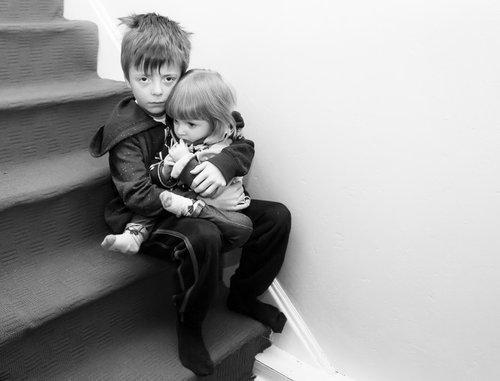Recent Blog Posts
New Illinois Family Laws in 2015
 Every year the Illinois legislature passes new laws that affect the rights and obligations of state citizens. There are nine new Illinois family-related laws for 2015:
Every year the Illinois legislature passes new laws that affect the rights and obligations of state citizens. There are nine new Illinois family-related laws for 2015:
- Sixteen-year-olds can be placed in temporary custody with the Department of Children and Family Services for delinquency (committing minor crimes). The age threshold used to be 15 years old.
- Amendments to the Child Care and Adoption Act address civil unions and expand the definition of “relative” to include great-grandparents, step-grandparents and cousins.
- There is now a Statewide Youth Advisory Board and regional youth advisory board to advise the Department of Children and Family Services on foster services.
Dissolving a Civil Union in Illinois
 Before Illinois permitted same-sex marriage, gay couples had the right to enter into civil unions. (Heterosexual couples, too, have this option.) Semantics and ceremonial purposes aside, there is not much difference between a marriage and a civil union in Illinois, especially since the Religious Freedom Protection and Civil Union Act took effect in 2011. That act gives civilly unioned couples the same rights under state law as married couples.
Before Illinois permitted same-sex marriage, gay couples had the right to enter into civil unions. (Heterosexual couples, too, have this option.) Semantics and ceremonial purposes aside, there is not much difference between a marriage and a civil union in Illinois, especially since the Religious Freedom Protection and Civil Union Act took effect in 2011. That act gives civilly unioned couples the same rights under state law as married couples.
Those rights include the right to de-couple. For a married couple, it means the right to divorce. For a civilly unioned couple, it means the right of dissolution. The laws applicable to a divorce are the same as those applicable to a civil union dissolution. Thus, all couples receive the same benefits under the law when they break up, whether the break up is a marriage or a civil union. Couples in a civil union, like in a marriage, will need to resolve:
Illinois Courts May Exercise Temporary Jurisdiction in Emergency Child Custody Situations
 An Illinois judge recently ruled that a Missouri teenager who has been hospitalized in Chicago should not be returned to his mother. The teen became a temporary ward of this state after the hospital reported his mother for medical child abuse. She wants to move him to another hospital in a different state, but the Illinois Department of Children and Family Services believes that she is interfering with her son’s medical treatment. For that reason, he has been placed under temporary protective custody in Illinois.*
An Illinois judge recently ruled that a Missouri teenager who has been hospitalized in Chicago should not be returned to his mother. The teen became a temporary ward of this state after the hospital reported his mother for medical child abuse. She wants to move him to another hospital in a different state, but the Illinois Department of Children and Family Services believes that she is interfering with her son’s medical treatment. For that reason, he has been placed under temporary protective custody in Illinois.*
*Note that the following is not a commentary on jurisdictional issues in the Missouri teenager case. Rather, the case is an example of when Illinois courts might address such issues.
Chicago Tribune Reports Abuse, Corrective Actions at State Youth Residential Treatment Centers
 If your child is now, has ever been, or someday is, in trouble with the law, you might be concerned about the state of Illinois’s juvenile justice system and how it may affect your visitation rights.
If your child is now, has ever been, or someday is, in trouble with the law, you might be concerned about the state of Illinois’s juvenile justice system and how it may affect your visitation rights.
The Chicago Tribune recently published a series highlighting the occurrence of illegal – and abusive – activities at some of Illinois’s youth residential treatment centers. (A youth residential treatment center is a facility that provides juvenile offenders with psychological and medical treatment, school and job training and temporary housing.) For example,the Tribune’s investigation revealed evidence of physical assaults, rapes, and child prostitution rings. In response to those allegations, the state Department of Children and Family Services began making unannounced inspections at the facilities, where officials are interviewing youth and staff as well as reviewing clinical records.
Illinois Law Strives to Protect Homeless Families
 Somewhere tonight – probably, in fact, somewhere not too far from where you live – a child is sleeping in a car, or on the street, or in a shelter. This child might have a family, but he does not have a place to call home. It is a humbling reminder that not every family has a comfortable (or even safe) living situation.
Somewhere tonight – probably, in fact, somewhere not too far from where you live – a child is sleeping in a car, or on the street, or in a shelter. This child might have a family, but he does not have a place to call home. It is a humbling reminder that not every family has a comfortable (or even safe) living situation.
While homeless families have fewer resources, they still enjoy the same protections under Illinois law. The state cannot deny its homeless citizens access to basic public services and must protect their legal rights. Specific guarantees are enumerated in the Illinois Bill of Rights for the Homeless, including:
- Homeless families have the right to be in public spaces, including on public sidewalks and on public transportation, without facing discrimination;
An Unemployed or Underemployed Parent’s Child Support Obligations
 The duty to pay child support stems from the child’s needs as well as the parent’s ability to pay. The second part of that equation depends on the supporting parent’s financial resources and needs. In other words, it is difficult to order parents to pay beyond their means. But what do such “means” include? Two years ago the Illinois Supreme Court considered whether money regularly drawn from a savings account is considered income for child support purposes.
The duty to pay child support stems from the child’s needs as well as the parent’s ability to pay. The second part of that equation depends on the supporting parent’s financial resources and needs. In other words, it is difficult to order parents to pay beyond their means. But what do such “means” include? Two years ago the Illinois Supreme Court considered whether money regularly drawn from a savings account is considered income for child support purposes.
The case, In re Marriage of McGrath, involved a divorcing couple with two children. Their marriage settlement included a joint parenting agreement granting physical custody to the mother. Because the father was unemployed, the initial agreement did not require him to pay child support. Eventually, however, the mother filed a petition seeking support payments. At the time, the father was covering his own living expenses by making withdrawals from his savings account. The court found that those withdrawals constituted his net income and used that amount to calculate his support obligations.
Debunking the Myth about Divorce Rates
 The New York Times recently published an article debunking the widely held “myth” about sky-high divorce rates. Contrary to popular belief, “It is no longer true that the divorce rate is rising, or that half of all marriages end in divorce. It has not been for some time.” The truth is that the divorce rate peaked three decades ago and has been in decline ever since. According to the numbers:
The New York Times recently published an article debunking the widely held “myth” about sky-high divorce rates. Contrary to popular belief, “It is no longer true that the divorce rate is rising, or that half of all marriages end in divorce. It has not been for some time.” The truth is that the divorce rate peaked three decades ago and has been in decline ever since. According to the numbers:
- Of couples who married in the 1970s and 1980s, 65 percent reached their 15th wedding anniversary;
- Of couples who married in the 1990s, 70 percent have reached their 15th wedding anniversary; and
- Of college-educated couples who married in the early 2000s, 89 percent have reached their 7th anniversary.
Custodial Parents Can Be Ordered to Pay Child Support to Noncustodial Parents
 In June 2014, the Illinois Supreme Court considered whether state law permits child support payments to noncustodial parents. Typically, it is the noncustodial parent who makes support payments because this parent does not have physical custody of the child. And if the custodial parent has sole custody, then the noncustodial parent does not have legal custody either.
In June 2014, the Illinois Supreme Court considered whether state law permits child support payments to noncustodial parents. Typically, it is the noncustodial parent who makes support payments because this parent does not have physical custody of the child. And if the custodial parent has sole custody, then the noncustodial parent does not have legal custody either.
The case, In re Marriage of Turk, involved a divorced couple with joint custody of their two children. Initially, the court ordered the noncustodial parent to make regular support payments, which he did. Eventually, however, the court awarded sole custody to the father (who was originally the noncustodial parent). The mother became the noncustodial parent with limited visitation rights. The father objected to his ongoing child support obligation, arguing that the Illinois Marriage and Dissolution of Marriage Act does not authorize court-ordered support payments to the noncustodial parent.
Harassment by Telephone or Via Electronic Communications
 Domestic abuse is not a cookie-cutter crime. The abuse can take on many different forms, including harassment by telephone (if directed toward a family or household member, or a significant other). Keep in mind that this category of harassment is not limited to telephone calls; rather, it also includes electronic communications such as text messages, emails and messages transmitted via social media outlets like Facebook. Those facing harassment from a spouse may wish to speak to an experienced attorney for help obtaining an order of protection.
Domestic abuse is not a cookie-cutter crime. The abuse can take on many different forms, including harassment by telephone (if directed toward a family or household member, or a significant other). Keep in mind that this category of harassment is not limited to telephone calls; rather, it also includes electronic communications such as text messages, emails and messages transmitted via social media outlets like Facebook. Those facing harassment from a spouse may wish to speak to an experienced attorney for help obtaining an order of protection.
Harassment by Telephone
A person can be charged with harassment by telephone if he or she uses telephone communication to:
Situations Requiring Authoritative Intervention
 Sometimes, no matter how hard parents try, their child might be beyond their control. This may occur after a troubling divorce, during a child custody dispute, or even in the absence of these circumstances.. Such situations call for government (authoritative) intervention. Under Illinois law, authoritative intervention is required for children under the age of 18 if the child:
Sometimes, no matter how hard parents try, their child might be beyond their control. This may occur after a troubling divorce, during a child custody dispute, or even in the absence of these circumstances.. Such situations call for government (authoritative) intervention. Under Illinois law, authoritative intervention is required for children under the age of 18 if the child:
- Is absent from home without parental consent; or
- Is beyond the parent’s or guardian’s control and in physical danger; and
- Refuses to return home after crisis services have been offered and the child and parents/guardians cannot agree to alternative placement.
If law enforcement reasonably believes that the minor is absent from home without parental consent or is beyond the parents’ control and in physical danger, then the officer may take the minor into limited custody. The officer must immediately inform the minor why he is being taken into limited custody. He must also make a reasonable effort to inform the minor’s parents about the situation.











